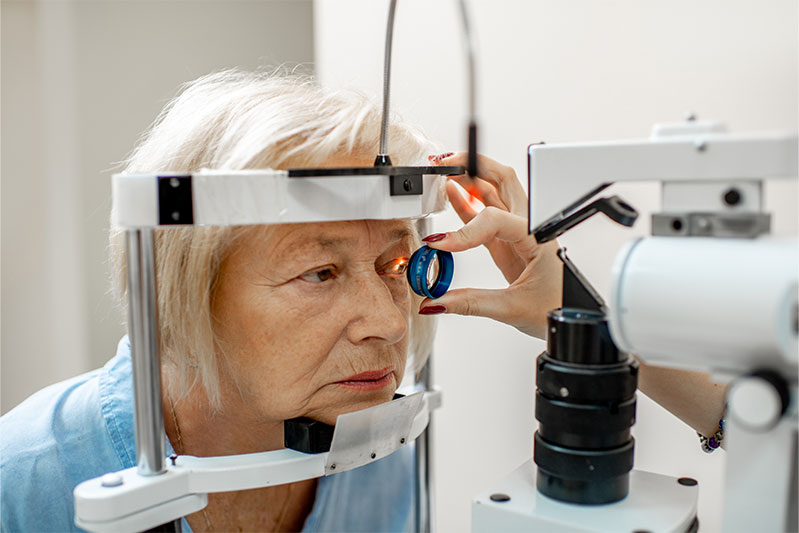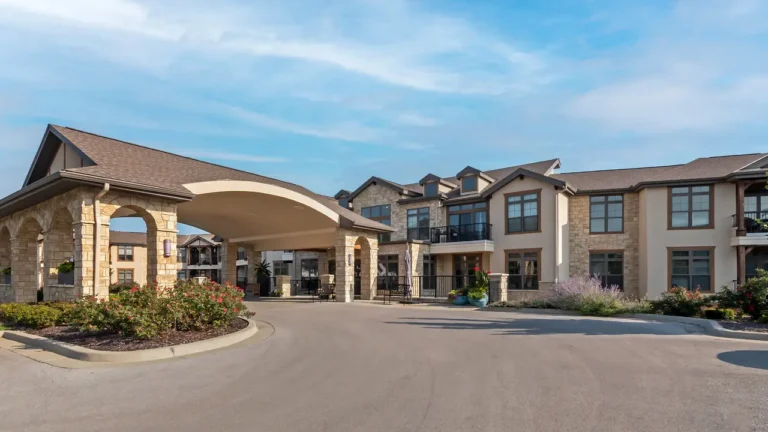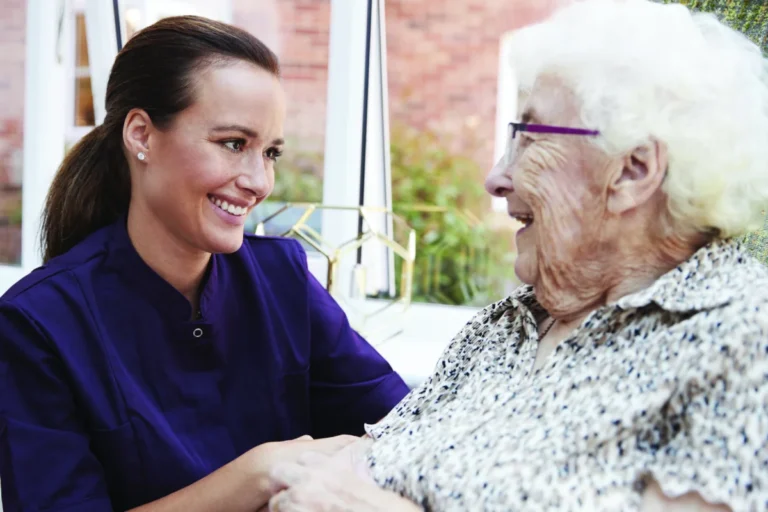There are certain things in this life that everyone should take advantage of, like taking time to smell the roses. Savoring the last piece of pie (even if you’re full). Seeing your eye doctor annually (to name a few).
August is National Eye Exam Month, which means as the warm weather starts winding down, eye exams are ramping up! This month serves as a timely reminder to not only have your eyes checked regularly, but to be mindful of various vision changes that occur with age, especially for seniors over 65.
Keep reading to learn more about the importance of regular eye exams, common vision problems to be aware of, and ways to preserve and protect your eyes to ensure the best vision possible as you age.
Why Are Eye Exams Important?
Just like a biannual teeth cleaning or an annual physical, eye exams are paramount for maintaining optimal eyesight and identifying early-onset eye conditions.
Even if you have eyes like an eagle, a professional eye exam can pinpoint possible underlying conditions that may otherwise be invisible to the naked eye. Oftentimes, many of these diseases are asymptomatic, which is why for seniors 60 and over, it’s wise to get a dilated eye exam every year or two. Below are the crucial reasons why:
- Early detection: Typically, people rely on symptoms to let their body know, “Hey, something’s not quite right here,” but for a lot of major eye conditions like glaucoma and AMD, regular eye exams are the best hope at detection due to the lack of symptoms present. Early detection can also yield more effective treatment options.
- Prescription updates: Almost all seniors wear some form of corrective lenses due to age-related vision changes, but an up-to-date prescription can reduce eye strain, improve overall quality of life and limit possible falls/injury caused by blurred vision.
- Possible changes in overall health: Did you know that a standard eye exam can lead to a diagnosis of diabetes or even high blood pressure? Powerful enough to detect blood vessel changes in your retina, a mere 0.5 mm thick, regular eye exams can improve your overall health by preventing conditions such as these from progressing any further.
The next time you practice preventative care like scheduling a physical with your physician, be sure to schedule an eye exam with your optometrist, too. It may just mean the difference between needing bifocals and needing surgery.
Are Eye Exams Free for Seniors?
While it’s important for seniors to include regular eye exams in their annual health screenings to maintain optimal vision, eye care can be expensive, and regrettably, Medicare doesn’t cover everything.
The good news is, although they’re not free, there are programs that offer low-cost eye care across the United States that you’re free to explore. As for what Medicare pays for, that answer comes with conditions because it could depend on several things like the type of plan you have, what you’re screening for, etc.
Common Eye Problems in Seniors
Age-related vision changes like presbyopia (the inability to view objects up close) and dry eyes are common after the age of 60 and can normally be resolved with eyeglasses or eye drops. However, the common eye problems listed below, if not detected in time, could lead to partial vision loss or permanent blindness:
- Cataracts: This occurs when the lens of your eye (or both eyes) becomes clouded, leading to blurry vision, dull colors, sensitivity to light and glare and more. Undergoing cataract surgery is the only way to resolve this eye problem.
- Glaucoma: Glaucoma involves damage to your optic nerve. Often painless and passed down through generations, symptoms can be nonexistent, and if left untreated, the condition could lead to vision loss and blindness.
- Age-related macular degeneration (AMD): AMD is an eye disease that affects the macula, causing central vision loss but not peripheral. The macula may be small, but it’s mighty, capable of turning the most basic activities like reading and watching TV into difficult challenges. You can slow the progression of this disease with early detection and diligent lifestyle changes.
- Diabetic retinopathy: This condition occurs in seniors with diabetes as a direct result of damage to the retinal tissue. It typically affects both eyes and can lead to blindness if not managed properly.
Handy Tips to Protect Aging Eyes & Prevent Vision Loss
Regardless of if you come from great family stock, consume carrots like a rabbit or always wear sunglasses behind the wheel, everyone can benefit from the eye care tips listed below:
- Healthy food is your friend and can improve your vision via rich antioxidants like greens, fruits and fish.
- Know your family history, and share the information with your doctor.
- If the sun is out, then get your sunglasses out! This can’t be emphasized enough as direct sunlight can cause cancer, damage to your eyes and other complex health issues.
- Stop smoking because not only can it negatively affect major organs like your heart and lungs, but the toxins can also impact your eyes.
- Keep spaces well-lit so as not to unnecessarily strain your eyes.
Remaining proactive in your lifestyle and diligent in your eye exams is the easiest and most effective way to preserve your vision now and for years to come.
Be Mindful of Eye Health
They say the eyes are the window to the soul, but they’re also a shutter for life’s miracle moments, perfectly capturing a grandbaby’s wide-eyed grin or a gorgeous Santa Fe sunset.
May this National Eye Exam Month serve not only as your annual reminder to have your eyes examined but a humble heartening that it’s never too late to improve your eye health. By prioritizing regular eye exams, leading a healthy lifestyle and staying informed and up to date on all things eye-related, you’ll lead a vibrant lifestyle with optimal vision for years to come.
About Tutera Senior Living & Health Care
At Tutera Senior Living & Health Care, we’re committed to providing seniors with quality care that supports their emotional, intellectual and physical well-being. Using individualized care plans, empowering wellness programming and clinical excellence, we’re able to restore quality of life for many seniors.
Interested in learning more about Tutera Senior Living? You can use our community finder tool to locate a community near you or call us today with any questions.







